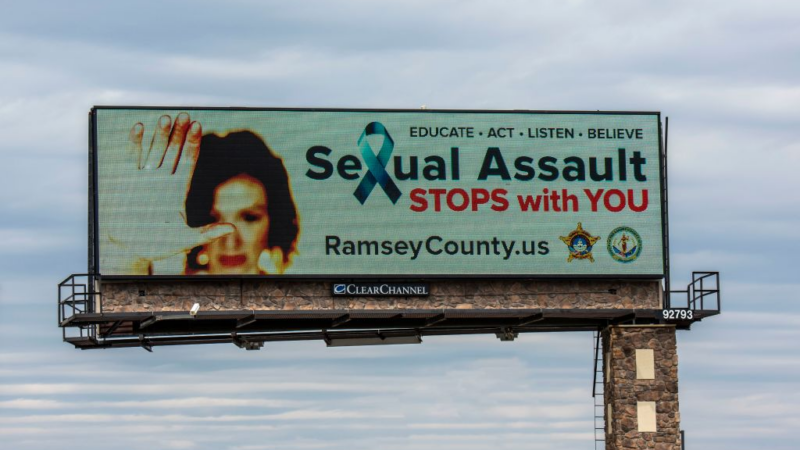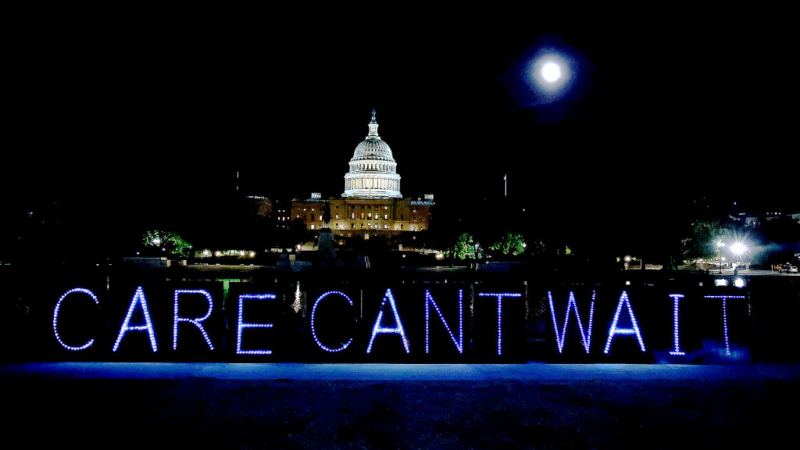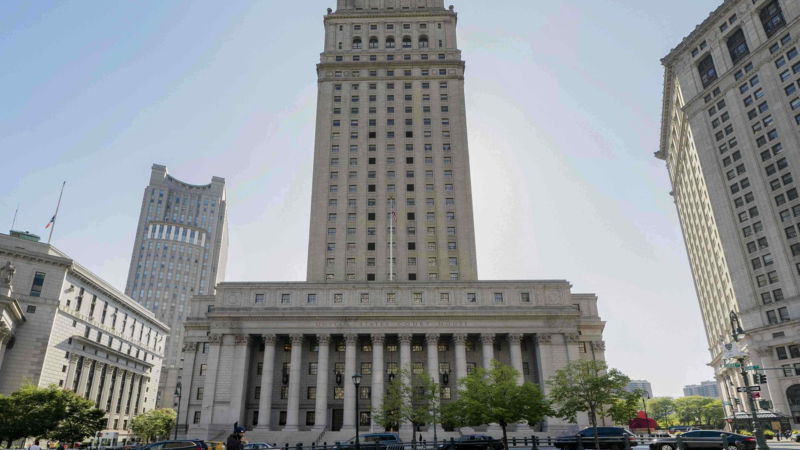Rape crisis centers see funding delays amid Trump administration spending upheaval
A disruption in federal funding has imperiled the work of community groups that run rape crisis centers and programs aimed at preventing sexual violence.
It’s just one example of the confusion and funding troubles affecting some social and health services since the Trump administration began scrutinizing spending.
Some groups have already begun to cut staff and limit the work they do.
The funding comes from the Centers for Disease Control and Prevention as part of the Rape Prevention and Education Program, which awards the grants every five years.
The new grant cycle was set to begin on Feb. 1, but the money never arrived, says Terri Poore, policy director at the National Alliance to End Sexual Violence in Washington.
“I am worried this is having a very real-world impact on anti-sexual violence work,” she says. “Nobody knows what is causing the delay and how long it will be.”
The impact of the funding disruption will vary by state.
The CDC grants are funneled through state health departments, which then distribute that money to nonprofits that run programs aimed at stopping sexual violence in their comunities.
While some states have reserves that can help keep programs afloat for now, others don’t have that cushion, she says.
For example, community groups in Texas are already dealing with the fallout.
“We have some programs that are actually starting to lay people off,” says Rose Luna, CEO of the Texas Association Against Sexual Assault, which receives the grant funding and coordinates with others groups across the state.
“We anticipate more the longer that this goes on,” she says.
The CDC program is authorized through the Violence Against Women Act, originally passed by Congress in the mid ’90s.
“We are hoping to still get this funding and that it’s just a hiccup,” says Rachel West, prevention and community development director for the Nebraska Coalition to End Sexual and Domestic violence.
West says without these funds, three programs in her state will have to stop their work on sexual violence prevention in schools and colleges, the hospitality industry, and employee training, for example.
Around the country, funding supports evidence-based strategies to prevent sexual violence. That includes “conducting hot-spot mapping and improving safety and monitoring in schools” and “ensuring women have adequate work supports such as safe and affordable childcare and paid family leave policies,” according to the CDC’s website.
Poore says the CDC has not communicated why the funds are being withheld, but hopes there’s a “simple solution.” Nevada is the only state that she’s heard from that has received notice that its funds have been awarded.
A CDC spokesperson referred NPR to the Office of Management and Budget for comment, which has not yet responded to a request for comment.
Luna says groups in her state that depend on this funding “are not sure how to handle the uncertainty,” she says.
“What’s at stake here are life-saving programs and information and messaging and education for communities in Texas.”
Edited by Carmel Wroth.
China flexes blockade capabilities near Taiwan on second day of military drills
China's People's Liberation Army is staging a second day of large-scale military drills around Taiwan. It's unleashing live-fire exercises as part of what it calls "Justice Mission 2025."
Policy relief for family caregivers seems stalled out. But there are signs of change
Family members carry the burden and costs of caring for America's aging population. Federal policy change is slow to come but a new movement and state actions are building momentum.
Federal appeals court judge is accused of bullying her clerks
The Legal Accountability Project complaint, which has not been previously reported, states that it is based on conversations with multiple former law clerks.
How Alabama Power has left the ‘American Amazon’ at risk
As its polluting coal ash ponds remain in groundwater, Alabama Power has doubled down on fossil fuel energy investments.
How George Wallace and Bull Connor set the stage for Alabama’s sky-high electric rates
After his notorious stand in the schoolhouse door, Wallace needed a new target. He found it in Alabama Power.
FIFA president defends World Cup ticket prices, saying demand is hitting records
The FIFA President addressed outrage over ticket prices for the World Cup by pointing to record demand and reiterating that most of the proceeds will help support soccer around the world.









